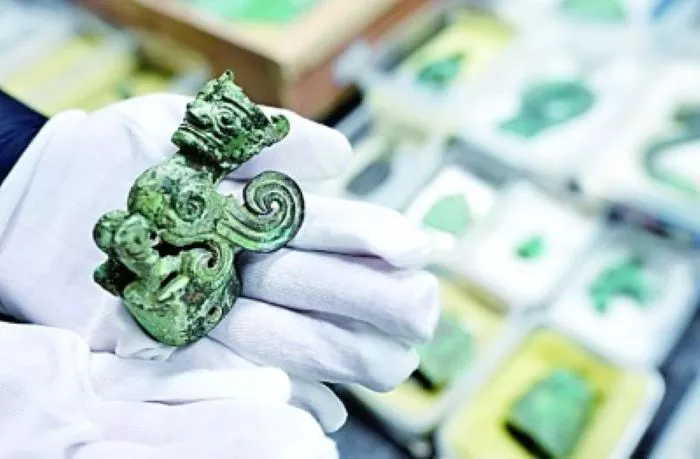Sichuan provincial authorities officially initiated the second phase of the Ancient Shu Civilization Protection and Inheritance Project on May 16 in Guanghan, marking a significant advancement in the study of this pivotal Bronze Age culture. The launch ceremony, organized by Sichuan’s Propaganda Department, Culture and Tourism Department, and Cultural Heritage Administration, builds upon five years of groundbreaking discoveries from the first phase implemented since 2019.
“The Ancient Shu civilization represents a vital component of China’s pluralistic yet unified civilization,” said Tang Fei, Director of Sichuan Provincial Cultural Heritage Administration. Recent archaeological breakthroughs at sites including Baodun, Yufucun, Sanxingdui, and Zhuwa Street have substantially enriched understanding of early Chinese regional states.
Expanding Research Horizons: 2025-2027 Archaeological Blueprint
The newly announced Sanxingdui-Jinsha Archaeological Research Work Plan (2025-2027) outlines ambitious multidisciplinary investigations. Researchers will examine structural features (rivers, roads, city walls, moats), specialized production zones, and previously unexplored areas at both sites. Thirty interdisciplinary research projects will analyze settlement patterns, craft technologies, resource management, environmental conditions, and ritual practices.
Professor Sun Hua of Peking University, Academic Dean of Sanxingdui Research Institute, emphasized the focus on chronological development and socio-political organization: “Our work will clarify the relationship between Sanxingdui and Jinsha sites while investigating Ancient Shu’s connections with other contemporary civilizations.”
Global Engagement and Sustainable Preservation
The second phase prioritizes enhanced conservation systems, improved heritage interpretation, and international collaboration. Building on the success of Sanxingdui Museum’s new gallery and global touring exhibitions like “Eyes on Sanxingdui,” Sichuan aims to establish new standards for archaeological site management.
“This project will provide crucial academic support for understanding regional civilization development and demonstrating China’s diverse yet integrated cultural origins,” Director Tang concluded, highlighting the initiative’s contribution to worldwide studies of early state formation.
Rlated Topic:
- Marriott Launches First Autograph Collection Safari Camp in Tanzania
- Emirates Launches Innovative Travel Store in Mauritius
- U.S. Issues Heightened Travel Warning for Italy Amid Terrorism Concerns

